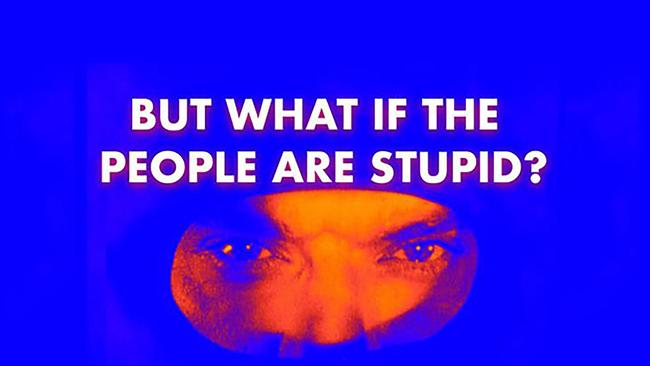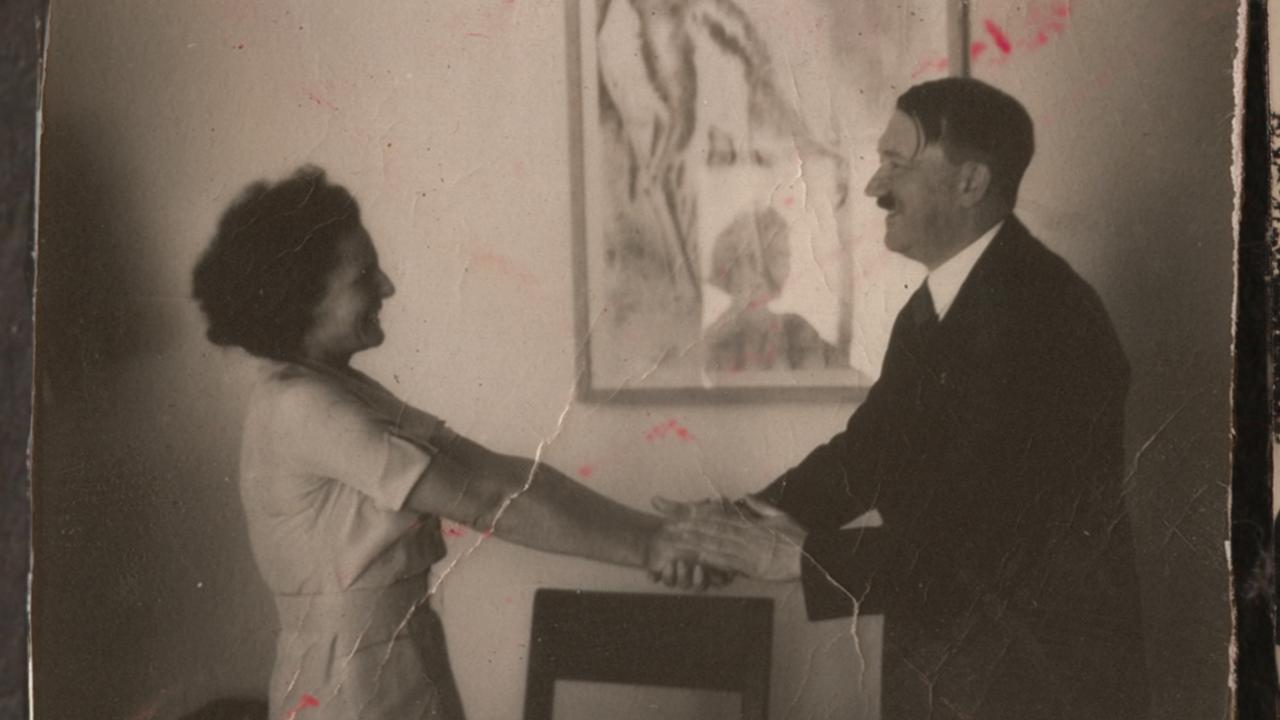Adam Curtis documentary Can’t Get You Out of My Head hits a nerve
The journalist and filmmaker has became a prophet to ‘dead-eyed, disillusioned young people’.

There’s a scene in Adam Curtis’ latest documentary — Can’t Get You Out of My Head: An Emotional History of the Modern World — that is a montage of cable news covering the final days of the Mueller investigation in 2019. Accompanied by the repeated phrase “the walls are closing in”, the scene is suffocating.
It seems to eerily capture the past year of our lives.
I am, in part, referring to lockdown and the barrage of “hope you’re staying safe in these unprecedented/strange/uncertain times, anyway just following up on …” emails that came alongside it.
Those weeks and months when we were cooped up alone ushered in a period of humiliating mania. Day after day of regrettable, compulsive posting. Downloading and deleting then re-downloading dating apps. Looking for connection wherever I could find it, desperate to talk to someone, anyone, about the things I was feeling. Nothing made sense! Nobody knew how to talk to each other! It was so goddamn lonely!
After mere weeks of social isolation, I was walking around like a personality-bankrupt ghoul. And it was pathetic/hilarious to realise how swiftly a lifetime spent conning yourself into believing you’re a girlboss she-E-O and master of her own destiny can implode.
This is what Curtis warns about. Can’t Get You Out of My Head is, at its core, a dense, eight-hour unspooling of history touching on themes of individualism, collectivism, modern liberal politics, artificial intelligence, American imperialism and big tech.

After reportedly setting out to make a film “like a nineteenth-century Russian novel”, over the course of six, sprawling episodes Curtis delves into the stories of a roll-call of disparate characters — among them, Jiang Qing, wife of Chairman Mao and a communist revolutionary, Tupac Shakur and his mother, former Black Panther activist Afeni, British civil rights activist Michael de Freitas, and The Sackler family.
His point? That no individual is bigger than their purpose. And that the failures of so-called individualism has led to a sort of cultural stasis. But Curtis is never didactic about it. Some characters overtly make his case, others serve as emotional touchstones.
The film feels like an extension of Curtis’ HyperNormalisation (2016) insofar as it is a study of “these uncertain times” — how we got to where we are, and a challenge to think up something better.
I’m not a theorist so my grasp on the concept of ‘individualism’ goes as far as a Wikipedia skim-read. I am, however, a dissatisfied, frightened, anxious adult who feels duped by the cult of the individual and the “self-reliance” it promised me.
And if the pandemic illuminated anything, it’s that I was feeling “uncertain” and “strange” long before we were shocked into this bizarre new world.
Curtis has worked on and off as a journalist for the BBC since the early 1980s. He’s carved out a legacy creating a dozen subversive documentary films that delve deep into the political, social and cultural currents of the 20th and 21st centuries. But before that, he cut his teeth on “trash TV”.
His first film shot for the broadcaster’s That’s Life! series was about a talking dog from Leeds that could say the word “sausage”. From this, he says, he learned to entertain, connect and develop a sense of journalistic playfulness.
Lately, he has become a prophet to dead-eyed, disillusioned young people. He speaks to those of us who, beneath the veneer of irony and protective detachment, secretly yearn for change. He cuts to our core by fusing history and politics with the same unhinged adrenaline of a Safdie Brothers film.
There are plenty of think pieces floating around the ether that will offer you an incisive political and academic dissection of Can’t Get You Out Of My Head. But they won’t tell you how the film made me feel — how Curtis diagnoses a prevailing sentiment and presents it in a mesmerising format that somehow makes me feel a little less alone.
It has been called both dazzling and incoherent. It’s certainly a head-rush — a feverish mishmash of gorgeously curated visuals, often seemingly disconnected from the “plot”, that have been drawn from 74 years of archival footage from the BBC.
Curtis, who was — correctly, in this writer’s view — dubbed a “cool DJ” by Dasha Nekravosa, host of the problematic but devilishly funny Red Scare podcast, mingles this footage with a very edgy, very esoteric soundtrack, one you wouldn’t expect to find playing alongside political journalism.
His films are experiencing a renaissance because they cater so well to our collective absent-mindedness and dwindling attention spans. Am I the only one who finds it almost impossible to concentrate? We require constant stimulation — RuPaul’s Drag Race playing in the background, a symphony of dings from a group chat, doomscrolling the Twitter timeline, opening up news articles in tabs we’ll never get past the third paragraph of. Adam Curtis films rope us in because they give us permission to be distracted — all those dreamlike tangents that allow us to briefly indulge in the sacred practice of online window-shopping — then it’s back to critical theory. Despite his reluctance to identify as an artist (he is adamant his job is that of a journalist) Curtis is an auteur. He possesses the gift of prescribing mood to Ryvita-dry politics. He lubes up our emotions through the hallucinogenic music of Sophie, Aphex Twin, Bright Eyes, and hits us with uneasy truths.
In Australia, business is, more or less, back to usual. But none of us is feeling quite right. Curtis dares us to do something about it. We’re haunted by the lack of future, we know that there is something off, but instead of leaning into hopelessness, he tells us we have to learn from history, reckon with our anxieties, and figure out an alternative.
Geordie Gray writes on film, TV and pop culture
*This article has been updated



To join the conversation, please log in. Don't have an account? Register
Join the conversation, you are commenting as Logout